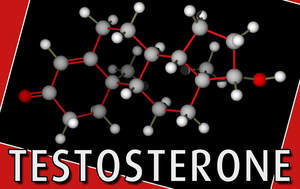Testosterone Deficiency May Exacerbate Menopause - Download MP3
Testosterone Deficiency May Exacerbate Menopause
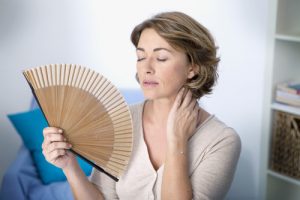 Most women think about female hormones when they think of menopause: Estrogen, Estradiol, and other hormones associated with the female menstrual cycle. But did you know that Testosterone is just as crucial for female health as male health, and women are at high risk of experiencing Low-T during menopause?
Most women think about female hormones when they think of menopause: Estrogen, Estradiol, and other hormones associated with the female menstrual cycle. But did you know that Testosterone is just as crucial for female health as male health, and women are at high risk of experiencing Low-T during menopause?
Video Link: https://vimeo.com/298639477
Video Download: Click Here To Download Video
Video Stream: Click Here To Stream Video
Video Link: https://vimeo.com/298640647
Video Download: Click Here To Download Video
Video Stream: Click Here To Stream Video
Many of these symptoms are psychological. Do you ever have trouble focusing or concentrating on day-to-day tasks? Many women associate memory issues with healthy aging, but it's often more than that. Maybe you think that your body is just slowing down because of aging, and along with your body, your willpower and your energy levels.
What about your libido? Does it seem like, the older that you get, the less interested you are in sexual activity? Are you moderate to your partner's advances, or do you actively avoid sexual activity due to pain and discomfort?
All of these symptoms are associated with Testosterone Deficiency in  Menopausal and Post-Menopausal women. Feminine Low-T is a real medical condition that affects millions of women, and if you experience the symptoms above, especially those related to sexual dysfunction, there is a real chance that you could benefit from Testosterone Replacement Treatment.
Menopausal and Post-Menopausal women. Feminine Low-T is a real medical condition that affects millions of women, and if you experience the symptoms above, especially those related to sexual dysfunction, there is a real chance that you could benefit from Testosterone Replacement Treatment.
There is a vast body of clinical evidence that shows that Testosterone is critically vital to feminine health. Estrogen is, of course, important, but as Estrogen Levels drop, this leads Testosterone Decline to become increasingly problematic.
What Should Women Know About Testosterone?
Testosterone isn't a male hormone; it's a vital hormone. It is found in its highest concentrations in men, but the ovaries and adrenal glands of the female body also produce the hormone. Testosterone is particularly essential for the maintenance of proper bone mineral density, healthy sex drive, and toned muscles. In fact, women are more at risk for osteoporosis expressly because their bodies produce less Testosterone, and so they are more at risk when Testosterone Levels start to fade.
Testosterone Deficiency is an intricate part of Menopause that Hormone Therapists and Medical Researchers are paying more and more attention to how Testosterone impacts women's health.
When Does Low-T Become an Issue In a Woman's Life?
Although Low-T is associated with Menopause in women, T-Levels often start to drop and become symptomatic earlier, sometimes up to ten years before Menopause occurs. Women that experience menopause quickly, or have their ovaries removed experience symptoms more vigorously.
Estrogen Levels and Testosterone Levels seem to play off of each other, and if Estrogen Production drops sharply, it can lead to significant issues related to Low-T
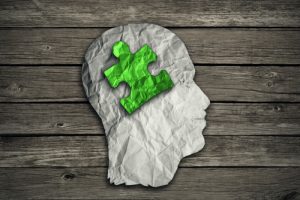 What Are the Symptoms of Menopause-Associated Low-T
What Are the Symptoms of Menopause-Associated Low-T
Although most symptoms that women notice at first are psychological, Testosterone Deficiency impacts feminine health at a core level. Declining Testosterone Production can lead to the following symptoms, among others:
- Mild Cognitive Impairment
- Muscle Atrophy
- Loss of Bone Mineral Density
- Slowing Metabolism
- Increased Body Mass
- Depression
- Sexual Insufficiency
- Inhibited Libido
In particular, libido can be affected severely. Estrogenic hormones may be responsible for a woman's cycles, but Testosterone is responsible for a woman's interest in sex. Testosterone even controls the amount of sexual pleasure a woman can experience, including the strength and power of her orgasms. The North American Menopause Society corroborates, explaining that Testosterone is the primary factor which controls the female orgasm.
What Benefits Can Women Experience from Low-T Treatment?
For women with Testosterone Deficiency resulting from Menopause, Testosterone Replacement can provide a wide variety of potent benefits. It improves muscle tone and strengthens the bones, protecting the patient from osteopenia and osteoporosis. It also increases energy levels, elevates mood, and may even protect the heart.
osteopenia and osteoporosis. It also increases energy levels, elevates mood, and may even protect the heart.
With Testosterone, it is possible to retain strength and prevent frailty associated with loss of bone density and muscle strength, and it can even benefit the smoothness and elasticity of the skin. This is all in addition to the proven sexual benefits of Testosterone for women.
Do You Think You May Benefit from Testosterone Therapy?
If you are a woman over thirty, and you think that you may benefit from Testosterone Replacement, all you have to do is set up an appointment with a clinical hormone specialist, and he or she can evaluate your health and hormone state and establish whether you have a clinical need for Testosterone. Many medical clinics offer their services online and can get you in touch with a local doctor that can meet you for the necessary medical appointment needed to evaluate your clinical need.
Your hormones are complex, and all interact with one another. When a woman is tested for Low-T, it is essential to perform a diagnostic evaluation on the blood to make sure that other conditions such as thyroid insufficiency or HGH Deficiency aren't the underlying cause of your medical issues. A single blood sample is generally all that it takes to provide a vivid picture of your hormone profile and allow your hormone physician to make a highly-informed and accurate diagnosis.
How Are Testosterone Levels Evaluated?
To establish a patient's potential need for Testosterone, the two most important tests are Free Testosterone and Total Testosterone. Total Testosterone refers to all Testosterone that is present in your bloodstream, 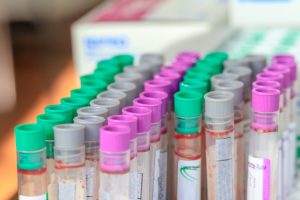 whether it is currently being used by the body, or available for use. Free Testosterone, on the other hand, refers to Testosterone which is floating through the bloodstream and has yet to be used by the body. It is Free Testosterone which is the indicator of healthy Testosterone Balance because both men and women need a particular concentration of circulating Free Testosterone to meet the needs of the body. This form of Testosterone is also known as Bio-Available Testosterone.
whether it is currently being used by the body, or available for use. Free Testosterone, on the other hand, refers to Testosterone which is floating through the bloodstream and has yet to be used by the body. It is Free Testosterone which is the indicator of healthy Testosterone Balance because both men and women need a particular concentration of circulating Free Testosterone to meet the needs of the body. This form of Testosterone is also known as Bio-Available Testosterone.
Every woman experiences Testosterone Decline in her own specific way, and all women have their own particular need for the hormone, whether they are premenopausal or post-menopausal. Estrogen Levels in the body decline sharply during Menopause, but Testosterone Deficiency among women tends to be a more gradual affair.
What's important to recognize is that, because of how every woman's body is different, it is vitally important to treat patients concerning their symptoms rather than their clinical Testosterone Results. Especially for women, a Comprehensive Blood Panel is essential to providing accurate treatment. It's also important to recognize that Testosterone is not the only factor involved with female health, which is clearly shown when women are treated with Testosterone versus placebo. Placebo alone provides some benefits to female health, especially about sex, but the effect of Testosterone Therapy is clinically shown to be two and a half times more potent than placebo alone.
What Testosterone Therapy Options Are Available to Women with Low-T?
If you are experiencing issues related to Low-T, and blood testing shows that you are suffering from abnormally low Testosterone Levels, your Hormone Specialist may recommend Testosterone Therapy. Understand that Testosterone is not FDA-Approved for the treatment of Female Low-T, but can still be prescribed for such a purpose, and there is strong clinical evidence to support its benefits.
may recommend Testosterone Therapy. Understand that Testosterone is not FDA-Approved for the treatment of Female Low-T, but can still be prescribed for such a purpose, and there is strong clinical evidence to support its benefits.
The reason why the Food and Drug Administration hasn't approved Testosterone for Women isn't that of an issue with the treatment itself, only that there are no current Testosterone Medications that are explicitly available for women, although there are many formulations perfectly suitable for such a purpose.
Women have many options available to them when it comes to Testosterone, but one form of treatment that should be universally avoided is the Testosterone Pill. Low-T Pills increase Testosterone through ingestion, but the issue with this form of therapy is that the Testosterone is broken down before it enters the bloodstream, which can negatively impact cholesterol balance and increase the risk of some cardiovascular conditions as well as overwork the liver.
When Testosterone is delivered via Pellet, Cream, Gel, or Patch, this is not an 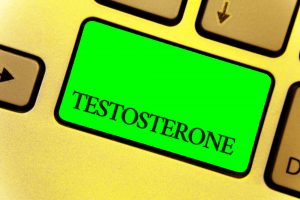 issue, and so these forms of treatment are considerably safer than the oral alternative while providing better and more consistent results. The type of Testosterone Treatment that you ultimately choose for menopause depends on a variety of factors, including the preference of your hormone doctor, the way that the patient responds to medication, budget, as well as simple consumer preference.
issue, and so these forms of treatment are considerably safer than the oral alternative while providing better and more consistent results. The type of Testosterone Treatment that you ultimately choose for menopause depends on a variety of factors, including the preference of your hormone doctor, the way that the patient responds to medication, budget, as well as simple consumer preference.
Understand the Potential Risks of Testosterone for Women
Talk about the pros and cons of Testosterone Treatment with the doctor you use for your menopause treatment. It's essential for every woman to know what she's getting into when it comes to starting any medical regimen, especially one that changes hormone balance.
Testosterone Restoration is a highly safe form of medical therapy because the goal is not to flood the body with Testosterone, but simply to restore healthy, youthful hormone balance in a way that optimally benefits the health of the patient. To make sure that the patient responds adequately to therapy, it is essential to keep track of Testosterone Concentration, Cholesterol Levels, and Red Blood Cell Count on a periodic basis to both make sure that the treatment is working and mitigating the risks of treatment.
Are You Interested In Testosterone for Menopause?
If you feel that menopause is suppressing your sex life or negatively impacting your health in other ways, understand that Estrogen is not the only form of Hormone Deficiency that affects female health during Menopause. Concerning many aspects of Menopause, maintaining healthy Testosterone levels is even more critical than preserving female hormone balance!
many aspects of Menopause, maintaining healthy Testosterone levels is even more critical than preserving female hormone balance!
If you are plagued by fatigue, memory issues, and loss of sex drive as you try to pass through menopause as just as possible, talk to your doctor about what Testosterone can do for you! Always be proactive, because the best care available to use is only a doctor's appointment away!
Contact Us Today For A Free Consultation

Word Count: 1625










